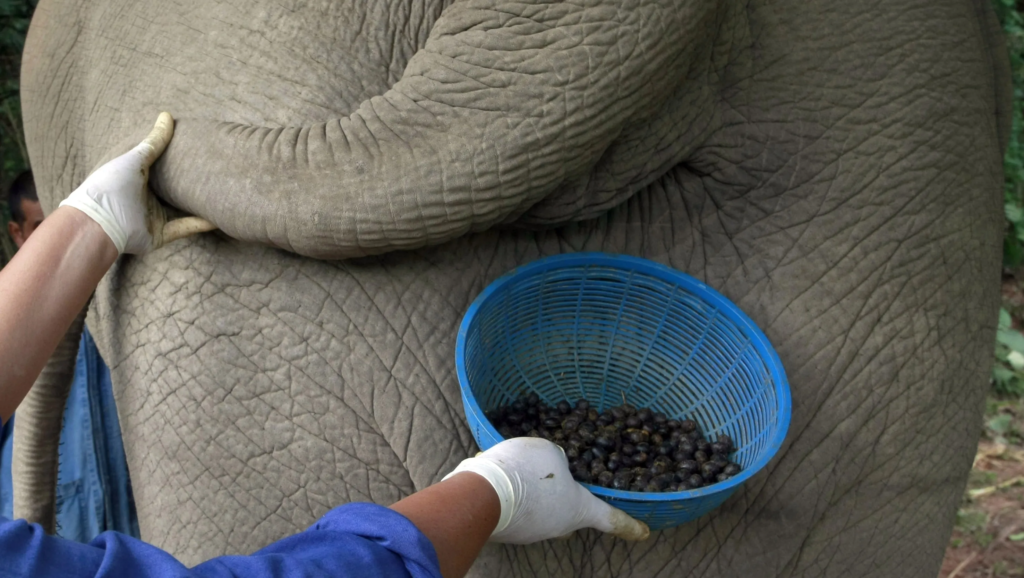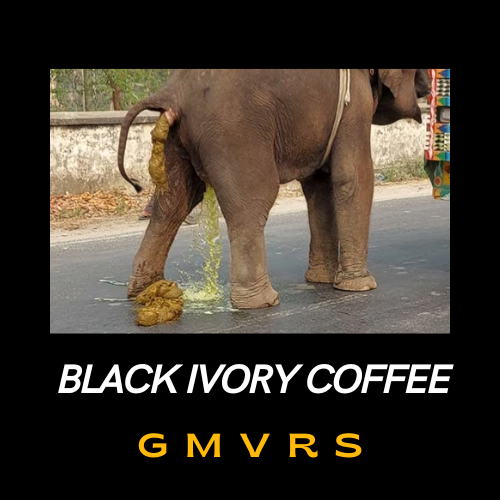These days, rich people prefer coffee brewed from excrement. It won’t be long before even the impoverished begin consuming coffee brewed from elephant dung.

Elephant dung coffee is one of the world’s most expensive at $50 a cup. At $1,100 per kilogram, it’s also among the world’s priciest.
The Arabica coffee beans that elephants eat and gather from their excrement are used to make the Black Ivory Coffee brand, produced by the Black Ivory Coffee Company Ltd. in northern Thailand. Elephants’ digestive enzymes break down coffee’s protein, affecting how Black Ivory coffee tastes. The company says it protects elephants from being abused in the tourism trade.
These days, rich people prefer coffee brewed from excrement. It won’t be long before even the impoverished begin consuming coffee brewed from elephant dung.

WHY COFFEE HAS A UNIQUE TASTE
“When an elephant eats coffee, its stomach acid breaks down the protein found in coffee, which is a key factor in bitterness . Think of the elephant as the animal kingdom’s equivalent of a slow cooker. It takes between 15-30 hours to digest the beans, which stew together with bananas, sugar cane and other ingredients in the elephant’s vegetarian diet to infuse unique earthy and fruity flavours,
CUSTOMERS: –
For now, the beverage—known as Black Ivory Coffee—is exclusive to the wealthy and well-travelled. It was introduced last month with a $50 price tag for each dish at a few upscale hotels in far-flung locations across the globe, including the Maldives, Abu Dhabi, and northern Thailand.
AVAILABILITY: –
Black Ivory Coffee costs US$2,000 per kilogramme, making it one of the priciest coffees in the world. The coffee is offered by the producer for US$50 per cup to a select group of upscale hotels. It is also possible to buy the coffee online. There were 215 kilogrammes of coffee products in 2021. The availability of coffee cherries, the elephants’ appetite, the quantity of beans chewed up by the elephants, and the mahouts’ and their wives’ capacity to retrieve whole beans are the factors that determine the supply of Black Ivory coffee. The enormous quantity of coffee cherries required to make the final product is a major factor in the product’s expensive cost. 33 kilogrammes (72 pounds) of raw coffee cherries result in one kilogramme (2.2 lb; 1,000 g; 35 oz) of the finished product. Most of the beans are not recoverable as they are chewed by the elephants, become fragmented, or are lost in the bush after being excreted.

Asian Elephant Foundation’s : Golden Triangle At the Golden Triangle Asian Elephant Foundation in Chiang Saen, an elephant refuge that looks after rescued elephants, Black Ivory Coffee Co. Ltd. initially manufactured this coffee. Black Ivory Coffee is now produced in the northeastern Thai province of Surin rather than the Golden Triangle. The coffee is made by about 20 elephants at the foundation. The Golden Triangle Asian Elephant Foundation receives 8% of Black Ivory Coffee Company sales as a donation, which goes towards paying for the elephants’ medical treatment. Elephants that eat coffee cherries do not experience any negative effects from doing so, and tests conducted by veterinarians have shown that the coffee cherries do not contain caffeine.
Kopi Luwak Coffee?
…


